

Michael Haneke's Caché boasts a thriller premise worthy of Hitchcock (or David Lynch, whose Lost Highway may have inspired the conceit). A French bourgeois couple, Georges (Daniel Auteuil) and Anne (Juliette Binoche), begin receiving mysterious videotapes at their home, tapes that mostly just show the exterior of their house in long, static views. The film's famous opening is a lengthy, silent view of a street scene, with eventually voices talking over it, expressing impatience that nothing is happening, a metafictional nod to ADD-afflicted modern cinema audiences. Only when the view is literally rewound is it revealed that this is a videotape, and that the voices are those of Georges and Anne as they try to figure out who sent this tape to them and why. This mystery drives the film, but it soon becomes clear that Haneke is not interested in providing a solution or treating this story like a conventional thriller. He's much more interested in the way this situation opens up windows into Georges' past, specifically calling up long-suppressed memories of an incident that occurred during his childhood. Through these videotapes, Georges reunites with Majid (Maurice Bénichou), an Algerian who as a boy lived for a time with Georges and his parents. Due to childish jealousy and insecurity, the young Georges told a lie that got Majid ejected from their family, essentially ruining the boy's chances for a better life beyond his immigrant status. This incident, nearly forgotten by Georges in his adult life, has never faded away from Majid's mind; he has nursed these wounds ever since. Haneke is probing at the intricacies of immigration and the failure of French political and social life to engage with the country's imperialist past, and especially the Algerian War.
As the videotapes keep appearing at Georges' door, his struggles become an allegory for the difficulties of dealing with issues of race, immigration and social status. For Georges, the past has been repressed. He has allowed his own actions to become remote from himself, to be dismissed from his mind, with little thought for the concrete effect that his childish lie has had on another man's life and opportunities. As a ward of an affluent white, native French family, Majid's life would doubtless have been much different than it turned out to be, and this is the central fact of the film, a fact that Georges is reluctant to address. But the videotapes increasingly make it difficult for him to avoid these uncomfortable truths. Haneke, always interested in media and documentation, sees video as an aid to memory, a way of confronting long-suppressed ideas. This is why his characteristic objective stance, embodied in his long takes and observational distance from his characters, is not cold or off-putting but paradoxically a way of getting closer to the truth, of not flinching away from even images that are difficult to watch and deal with. The film's notorious ending, in which the questions raised by the narrative are not resolved but left dangling in the most startling fashion, is not a dodge for Haneke. He wants to raise more questions than he answers here, to get people thinking about their own complicity in the routine injustices of the world. But he also wants to provide a measure of hope, as he does in the film's oblique final shot, which presents, hidden within its cluttered frame, a possibility of conversation and reconciliation, a suggestion that the crimes of previous generations can be addressed by the current generation.
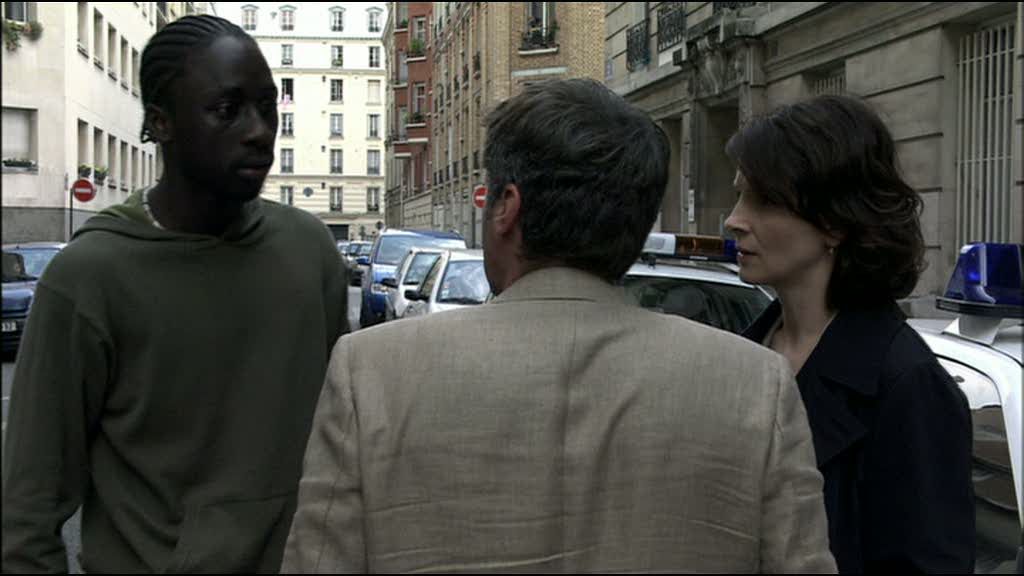
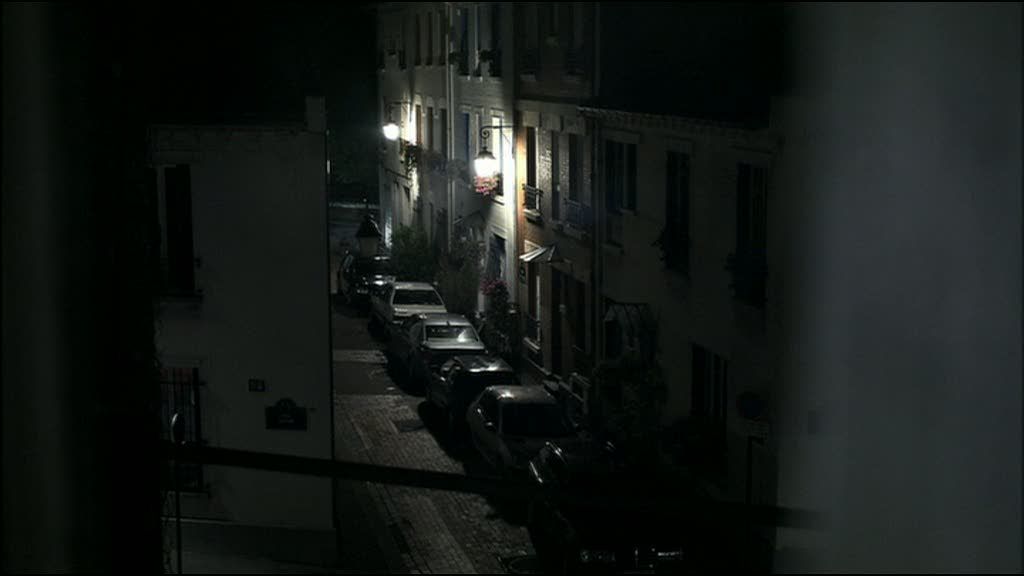
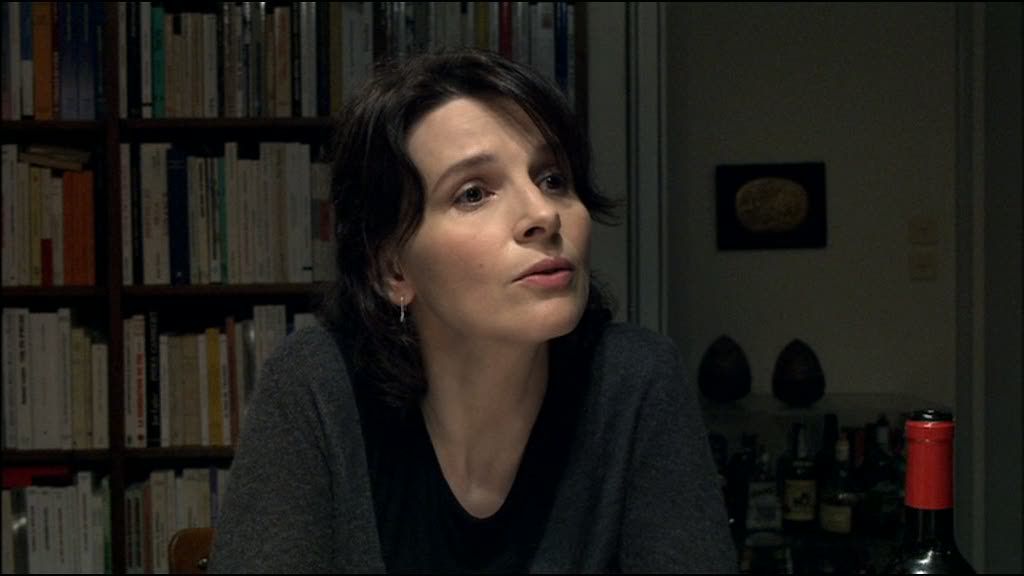
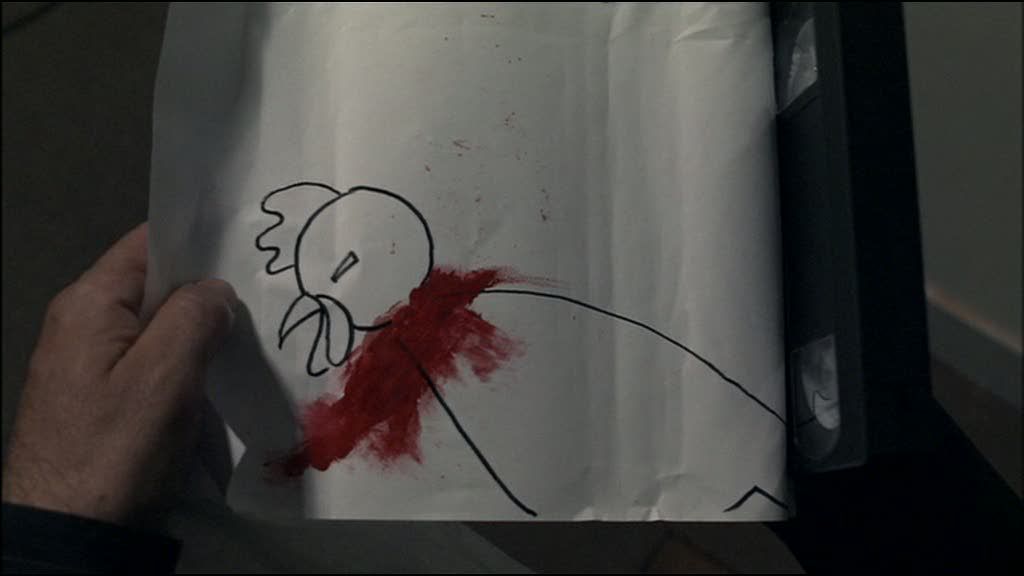
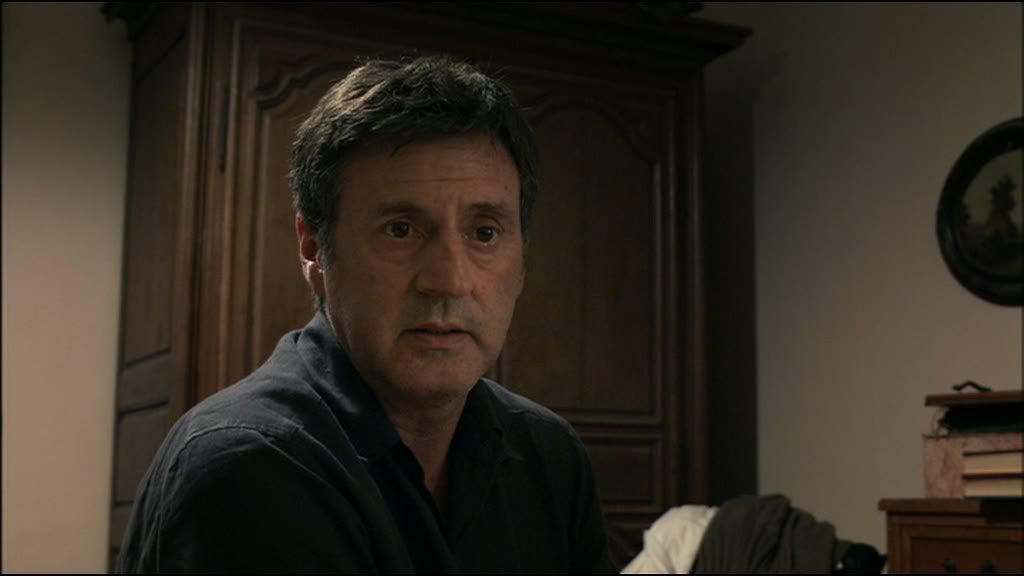

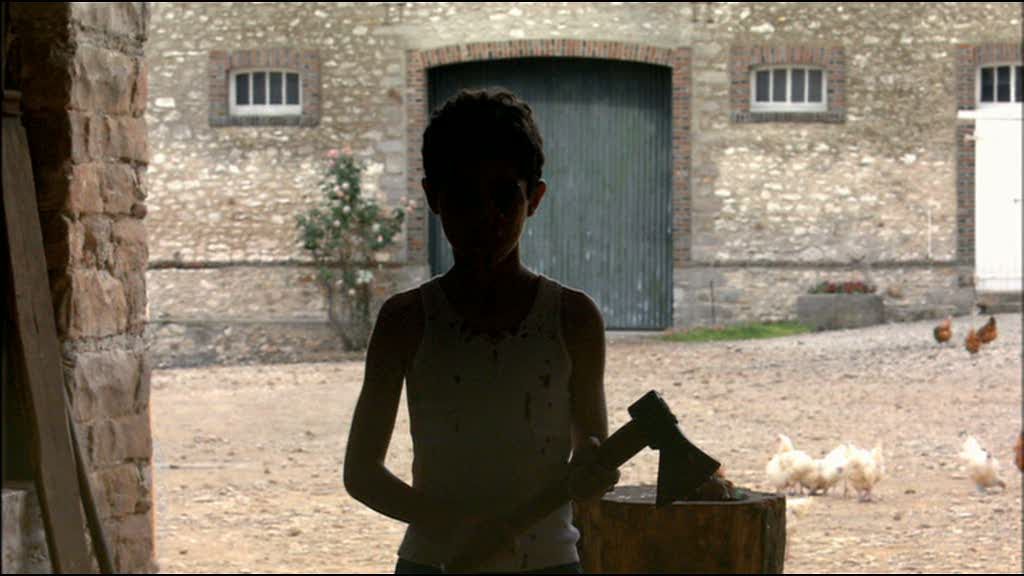
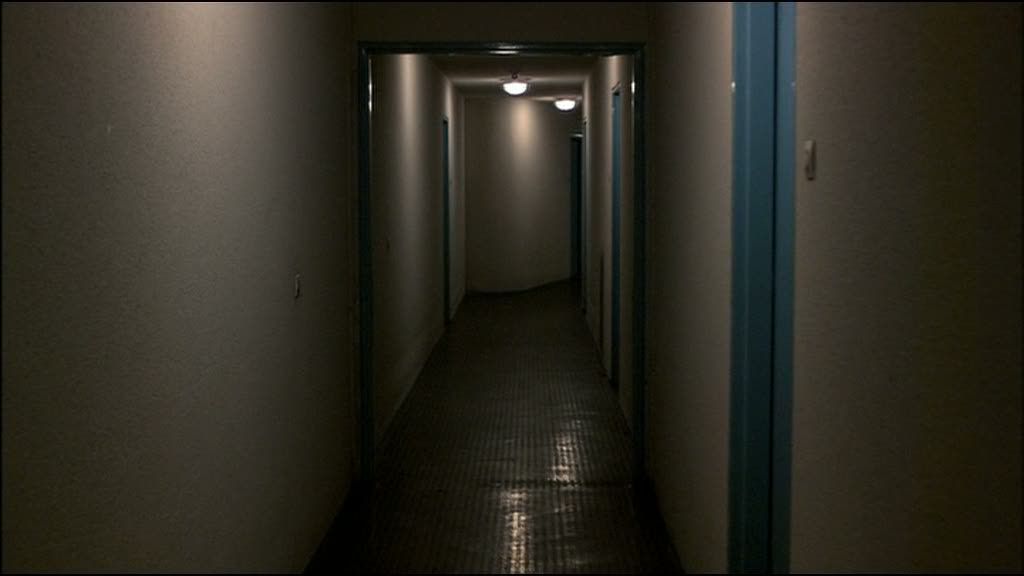
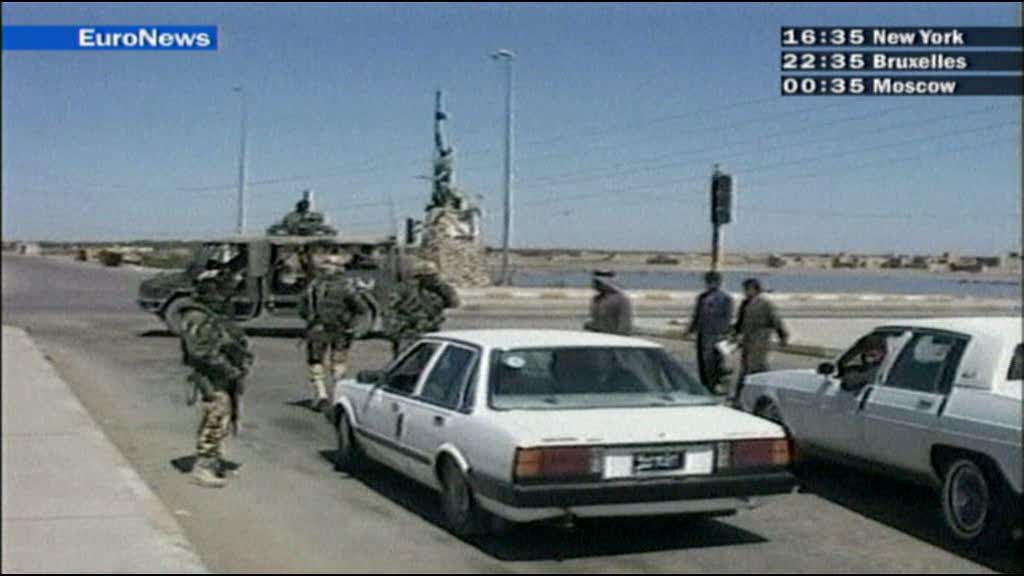
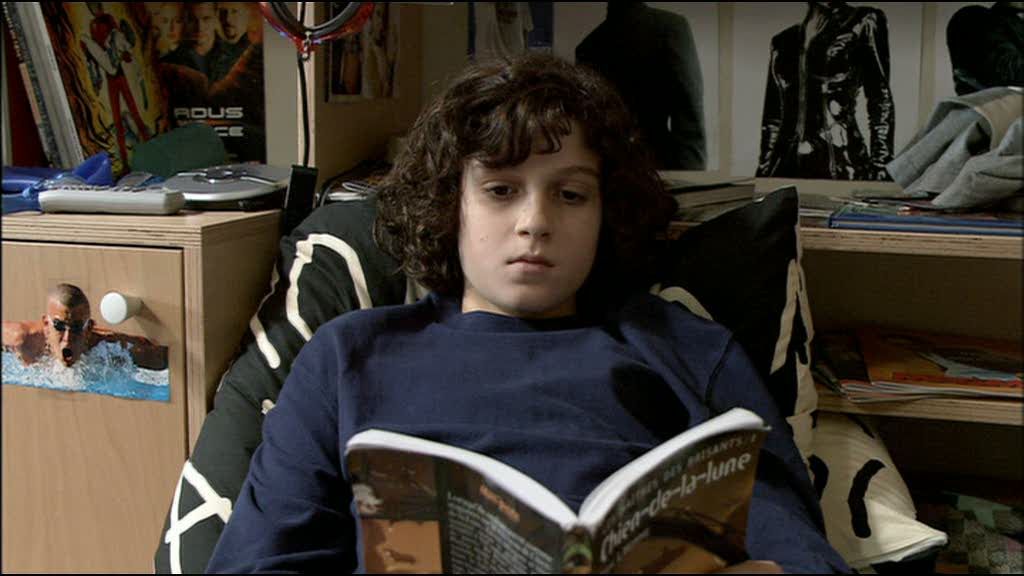

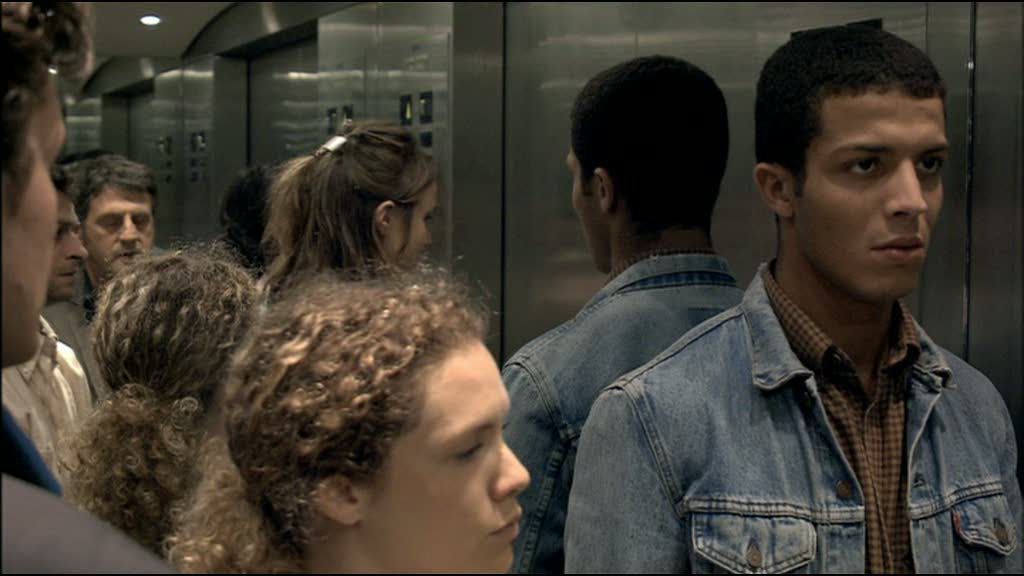
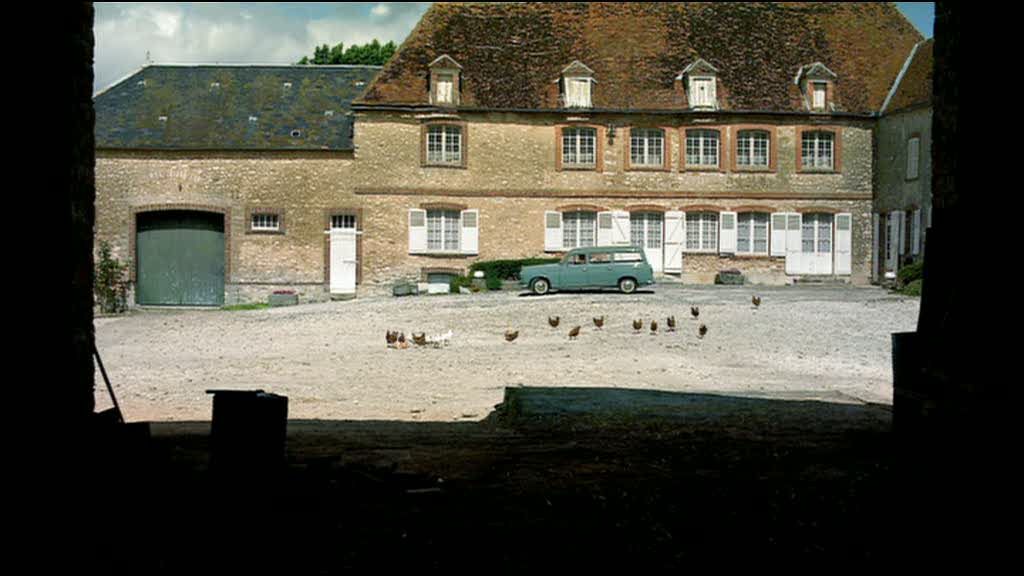
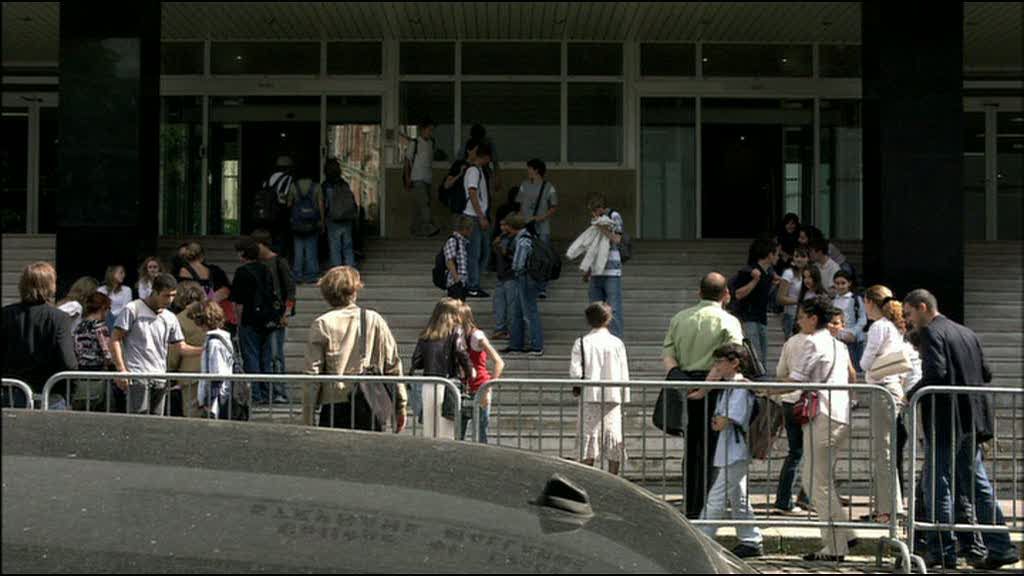
"Haneke, always interested in media and documentation, sees video as an aid to memory, a way of confronting long-suppressed ideas. This is why his characteristic objective stance, embodied in his long takes and observational distance from his characters, is not cold or off-putting but paradoxically a way of getting closer to the truth, of not flinching away from even images that are difficult to watch and deal with."
ReplyDeleteNice!
I have always found myself defending this film, although my colleague Allan Fish is a big fan. It's a social polemic, a thriller, and a work of meticulous artistry, three points that you yourself broach in this very fine review. And it's timely, what with Haneke's THE WHITE RIBBON winning last month at Cannes.
That upcoming release notwithstanding, CACHE is the director's best film to date.
This too is a film I love. The video tapes, especially the one peering out the window of a car and eventually settling in on the main character's house, are truly eerie. I'm in awe of Haneke's willingness to let important messages sort of disguise themselves in the hidden alcoves of the frame. There's so much more to this film than what lies on the surface.
ReplyDelete-Carson
Excellent observations there Carson.
ReplyDeleteI would like to note that two other Haneke films are expertly crafted if bleak and deeply disturbing and they are FUNNY GAMES and TIME OF THE WOLF (the former about the toture and murder of a family, the latter about apocalyptic events in Europe) while I respect both BENNY'S VIDEO and CODE UNKNOWN, if a little less passionately.
But I don't think I'll be able to watch FUNNY GAMES again, nor that dire American re-make that followed.
Thanks, guys. I too love the subtlety of Haneke's vision in this film -- this was not always the case with him, as his earlier films, no matter their other merits, tend to be as subtle as a sledgehammer in delivering their messages, like the "media is bad" sermonizing of Benny's Video or the all-encompassing horror of modern society in the formally masterful Seventh Continent. Haneke's earlier films, including the simplistic Funny Games, are films I admire from a distance rather than really enjoy or appreciate. From Code Unknown on, his films have opened up, allowing in more room for genuine humanity, more of a place for human choice. To put it another way, in his more recent work, he seems concerned with solutions as well as problems.
ReplyDeleteFair enough Ed. I am a little kinder to BENNY'S VIDEO ands SEVENTH CONTINENT, but agreed they are no masterpieces, which I do believe CACHE comes close to being. FUNNY GAMES is expertly made, but as I said earlier, I will never be able to watch it again. I have high hopes for his new Cannes winner.
ReplyDeleteI wasn't a big fan of this film, though time has erased what my exact objections to it were. I do know that the obsession with cameras observing our every move was in half the films that came to the CIFF that year and the following year. This may have been the most skillful - certainly that opening sequence is a knockout - but it still confused the issue for me. I just didn't relate to France's immigrant "problem" in this film, not like I did October 17, 1961, which was documentary in nature.
ReplyDeleteAs for Time of the Wolf, I reject the characterization of the film as post-apocalyptic. Clearly, the film takes place in France and the refugees in this situation are French. I saw it completely as a commentary on the plight of war refugees; I even found the description of it as an apocalypse as classist and condescending to war refugees from the third world. Aren't their wars apocalypses, too, in that case?
Hey Marilyn!
ReplyDeleteI also do not see TIME OF THE WOLF as "post-apolyptic", I only characterize the surface events as depicting this. For me the film is mostly about man's potential for self-destruction, and of society's breakdown (which was of course broached years later with CHILDREN OF MEN as well) both which thematically manifest themselves in the doomsday scenario.
You make a fine and thoughtful point there, and I have no issue with that.
again a spelling/typo, I am truely sorry Ed.
ReplyDeleteshould be "apocolyptic" not "apolyptic."
And to further clarify what I said as I didn't like the way it came out. TIME OF THE WOLF does depict visually and narratively (though th efilm is craftily cryptic)a nuclear fall-out. But the film is not thematic about that event per se, but about what I stated above. I have no idea why I make so many gaffes here at ONLY THE CINEMA, and can only imagine what Ed must think of me. LOL!!!
"But I don't think I'll be able to watch FUNNY GAMES again"
ReplyDeletethis is a question I have about Haneke's work. he's obviously supremely talented, but it seems like he relies on shock/surprise too often, and probably because of that, I also never find myself wanting to rewatch his films. I'm not quite sure how legit of a critique that is, but it's something I've thought about for a while now.
this is a question I have about Haneke's work. he's obviously supremely talented, but it seems like he relies on shock/surprise too often, and probably because of that, I also never find myself wanting to rewatch his films.
ReplyDeleteI've thought some of the same things, Jon, especially about Haneke's older works. Films like The Seventh Continent, Benny's Video and Funny Games get their point across, bluntly and with varying degrees of success, and then that's about it. I can't imagine wanting to revisit those films.
That said, I don't think his newer films are quite so reliant on shock or surprise -- or at least, the shocking moments, like the infamous scene with Majid in Caché, are not the substance of the film. There's much more going on in these more recent films, like the complex political subtexts of this film, and the psychological study of The Piano Teacher, and the enigmatic allegory of Time of the Wolf. I think Haneke has become a much more rewarding filmmaker as he's matured.
When I first watched cache ,and as I also got confused shocked surprised at the end,I tried to google about cache.i got many articles explaining about cache.I got director's conversations too but like his films heneke's conversation was also very confusing but raising some fundamental issues.But your article here is the best I have read about cache.
ReplyDelete